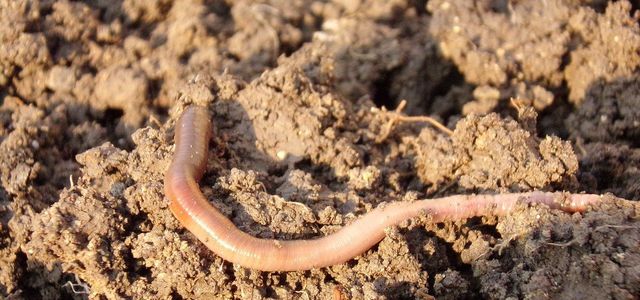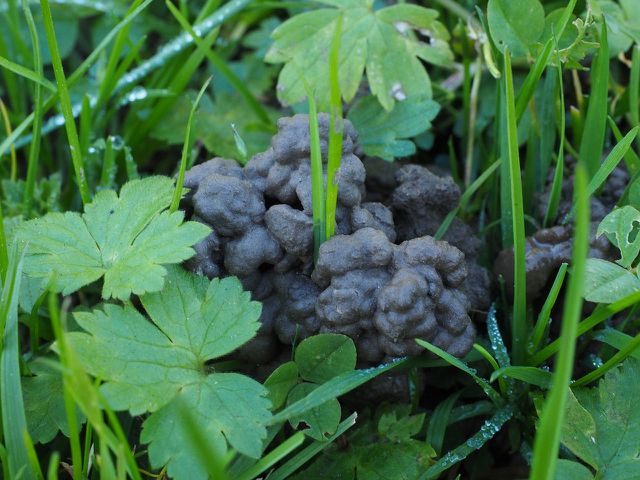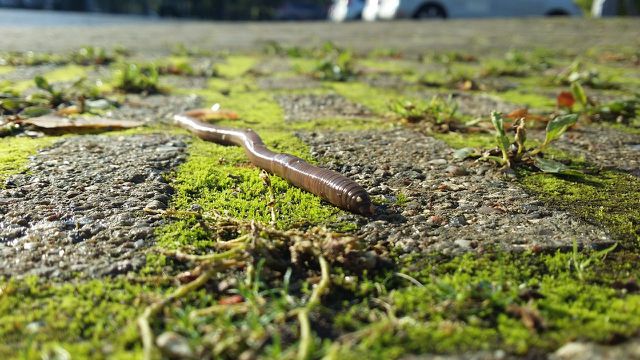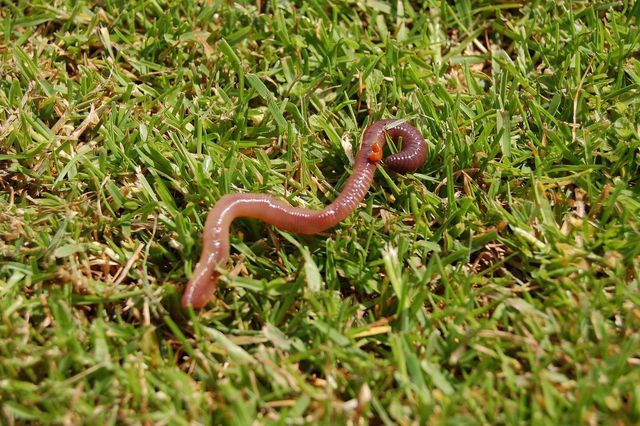
By breeding earthworms, you can loosen and improve your garden soil in a very natural way. In this article, we’ll show you why these beneficial organisms are so important for good soil quality and how to propagate them.
Earthworms may not be the most handsome creatures in the animal kingdom. Nevertheless, it can be very useful for you as an amateur gardener to breed earthworms. This is because the worms positively influence the soil quality in your garden and also produce vital fertilizer for your plants. By breeding earthworms, you also make an important contribution to natural soil protection. In this article we will show you what you need to know about the worms and how you can protect and breed them.
Contents
Grow earthworms: Benefits for your garden

There are many reasons why you should breed earthworms. The small animals help to loosen heavily compacted soil. This means, for example, that you don’t have to dig up your garden as often.
If you want to breed earthworms, you should know something about their behavior beforehand. Earthworms are light-shy and nocturnal animals. They spend most of their three- to eight-year lives pulling leaves and other plant matter into the soil. The organic material rots in the aerial tunnels and serves as food for the earthworms.
The decomposed plant parts and the worms’ droppings bring numerous benefits to your garden:
More nutrients in the soil: If your garden soil lacks nutrients, you can improve your soil quality by growing earthworms. The worms decompose organic materials such as dead leaves and produce valuable humus through their excretions. Another positive side effect: earthworms dig deep tunnels in the soil, ensuring that the humus-rich soil they produce reaches deeper layers of soil.
Useful microorganisms:
When earthworms decompose leaves, they produce not only nutrients but also bacteria that are essential to the soil. These bacteria are also called effective microorganisms and break down the nutrients in the soil so they can be absorbed by plants.
Loose and well-aerated soil: If you cultivate your garden for a long time, the soil may become increasingly compacted. Rainwater can then no longer drain properly through the solid layers of soil. The consequences can include failed harvests, root rot and waterlogging. If you want to prevent soil that is too solid, you should breed earthworms. The underground tunnels of the worms loosen the soil and ensure that the soil is sufficiently aerated.
Breeding earthworms: Here you get the worms
Before you can breed earthworms, you must of course first get yourself some worms. Especially the species “Dendrobena veneta” is well suited for breeding, because they are very resistant and active. Moreover, a worm of this species can process its own weight of organic waste per day. Since earthworms are often used for fishing, you can buy them for example in pet stores or in stores for fishing supplies.
Breeding earthworms in the worm bin

To breed earthworms, you need to provide them with a habitat with dark, moist soil and a temperature of at least 25 degrees. A worm box is best suited if you want to breed the worms in a targeted manner. You can get the closed boxes made of untreated wood in garden stores, for example. Alternatively, we show you in another article how you can build a worm bin yourself.
A nice side effect: In the worm box you can not only breed earthworms, but also let the animals process your organic waste into compost.
Once you have built or bought a worm bin, you can fill it with food for the earthworms. Here’s how to do it:
- Cut up some scrap paper and soak it in water. Now spread the paper shreds a few centimeters high in one half of the worm bin.
- Carefully place the earthworms on the paper layer and give them some time to retreat.
- Put small amounts of organic waste on the paper layer every day. Earthworms prefer to feed on kitchen waste such as vegetable scraps or even coffee grounds.
- Leave the other side of the worm bin empty. This is where the finished compost will end up later.
- Regularly mix small pieces of paper into the worm bin. Alternatively, you can soak unprinted egg carton and add it to the worm bin. This ensures that the substrate does not become too wet and also provides the earthworms with important carbon.
- In spring and fall, hermaphrodite earthworms are particularly active. This is when they lay a particularly large number of eggs.
- After two to three months, you can collect the hatched worms and place them in the garden or on the compost.
- You can leave some of the earthworms in the worm bin to breed new earthworms later. In that case you have to take care of the worms regularly. As soon as you have enough, release them into the garden.
How to bring the earthworm into your garden

Breeding earthworms is only the first step in establishing the animals in your garden. In order for them to feel at home in the long term, you need to create optimal living conditions for the animals. With the following tips, you can attract more earthworms to your garden:
Work compost into beds: Earthworms thrive best in moist, nutrient-rich soil. If you want to attract the animals, you should regularly work compost into your garden beds. In this way, you will not only be doing something good for your plants, but also for the earthworms.
Onion peel as an attractant: Kitchen waste such as onion peel is particularly popular with earthworms. Therefore, if possible, always dispose of the peels in your compost. After a while, the first earthworms will populate the compost pile and help create new, high-quality natural fertilizer there with their digestion.
Keep soil moist: Water your beds regularly so that the soil there always stays slightly moist. Because earthworms feel most at home in moist soil.
Mulching as frost protection: Unfortunately, earthworms do not tolerate frost at all. That’s why they burrow into deeper soil layers in colder temperatures. To a certain extent, however, you can prevent the soil in your garden from freezing too quickly. To do this, apply a generous mulch layer of autumn leaves or bark mulch to your beds in the fall.

